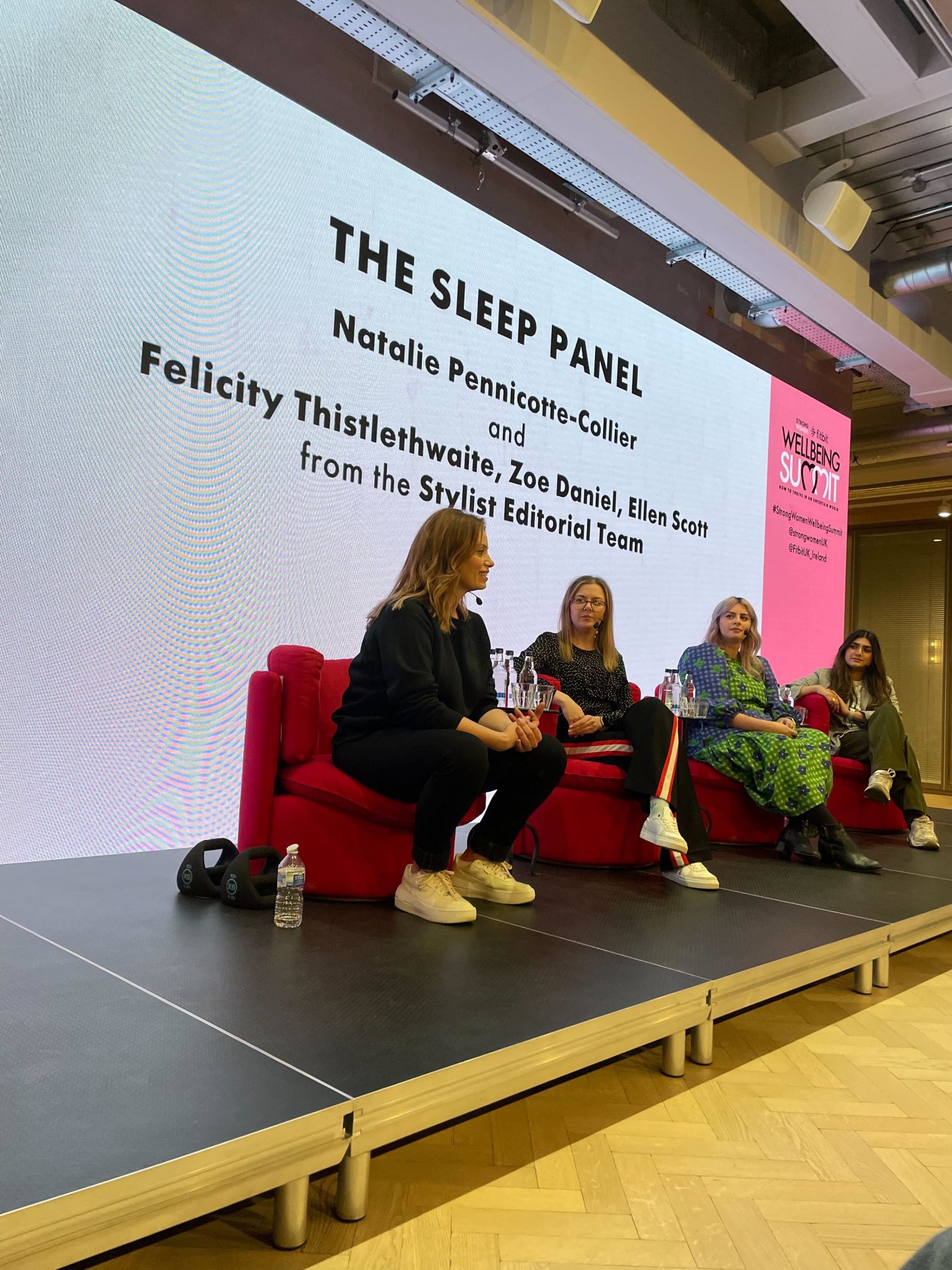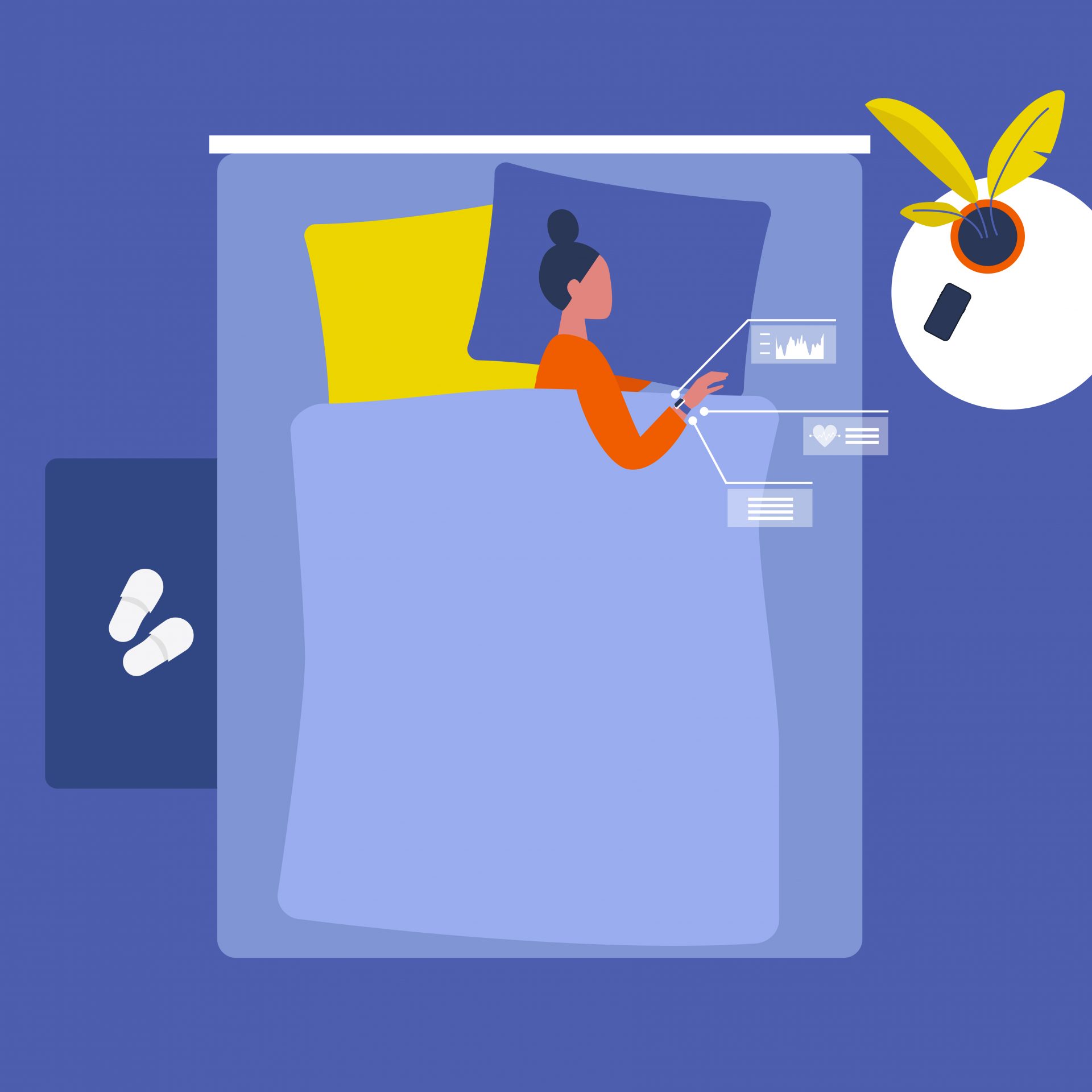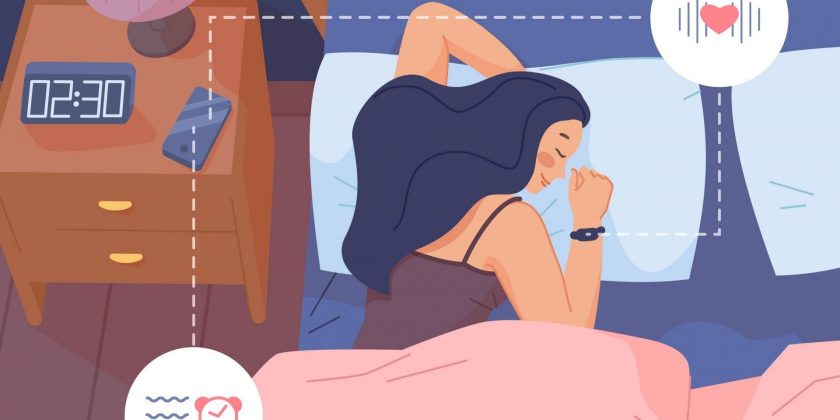This January, we’re on the search for quick, accessible hacks to kickstart 2023 in the strongest way possible. Today’s sleep kickstarter: three women on what they learned from tracking their sleep on Fitbit.
Probably the most common conversation we have here at Stylist HQ, other than talking about Stephen Graham or the latest TikTok hack, is just how tired we all are. It doesn’t matter what day or time it is, someone will start banging on about feeling low-energy.
It’s no wonder, given how chaotic life is right now. On our team, we’ve got women in their 20s who spend their weekends going ‘out out’, new mums juggling work and childcare and members of the low-iron crew. Throw on top of that the cost of living crisis, rent woes and the delicate balance of fitness, social life, relaxation and work, and it’s amazing that anyone’s having a good night’s sleep.
You may also like
Sleep routines: these simple Gen Z pre-bed rituals are helping to improve sleep quality. Here’s how to create your own
But good sleep – whatever that means to us individually – is possible. The key is in understanding what we need and how to get it. And that’s where tracking can come in handy. If you keep feeling knackered after a decent amount of time in bed, then it’s time to look into how many hours you actually spend asleep and what factors disrupting your rest.
With that in mind, I asked three of our most tired Team Stylist members to wear a FitBit Sense 2 tracker for a month. For four weeks, they had to follow their usual sleep routine wearing their watch – after which, they’d find out what their ‘sleep animal’ is. And then, they were put in front of sleep therapist Natalie Pennicotte-Collier.
Here’s what they learned.
The recovering shift-worker
Deputy editor, Ellen Scott
I’ll be real, I came into this experiment with a firmly anti-sleep-tracking stance. For years, I’ve had to get up for work around 4am, which has resulted in being chronically sleep-deprived. It’s only recently, after getting a new job, that I’ve had a more ‘normal’ schedule. Knowing that, historically, I’ve not slept as much as I probably needed to, sleep-tracking has always felt like a way to get too obsessive about rest or to goal-ify something that shouldn’t be so rigorously measured. But after over a month of wearing a Fitbit to bed, I can admit that I was wrong. I am officially a convert.
Tracking my sleep has given me the tools I need to actually prioritise rest. I’ve learned that I take a while to drift off (hence my slightly embarrassing designated sleep animal of a tortoise) and that my sleep is disturbed far more than I knew. I always thought of myself as a deep, steady sleeper, but the stats revealed multiple times in the night when I woke up without remembering in the morning.
As a result, my total sleep time isn’t as much as I thought I was getting. Previously, I would have patted myself on the back for getting to bed at 10pm and then questioned why I was still tired in the morning. Now, I realise that I’m rarely getting the eight hours I was counting – it’s usually closer to six. I dread to think how little sleep I was getting on my 4am-wake-up days.

Armed with this data, I’ve started making changes – and I can actually see that they’re having a positive effect, which boosts my motivation to keep it up. I started playing pink noise as a test and noticed far fewer waking moments. I aimed to get to bed earlier than I thought I needed and took note of the Fitbit recommendations to do a soothing pre-sleep routine (facial massage, putting away my phone, reading a book).
My sleep isn’t perfect, and I don’t expect it to ever be – that’s a path to stat obsession and inevitable failure. But it’s getting better, and I now have the ability to make positive changes and see the benefits in real-time. I feel like I’ve finally got some control – and hope for more mornings where I feel genuinely well-rested.
The social jet-lagger
Social media assistant, Zoe Daniels
When first asked if I would track my sleep, I had my reservations. I’m someone who is chronically scared of not getting enough sleep – the type of person who counts back nine hours from when she needs to wake up in order to be certain I’m not the grumpiest, most irritable version of myself.
I don’t, however, have great sleep habits. Most people struggle to drift off after a stressful day at work but I find it almost impossible to wake up in the morning – something I’ve put down to the fact that I split my working week between London and Scotland.
My Fitbit sleep animal is a giraffe, meaning that I go to bed late and wake up early (the discovery of which came as a bit of a surprise, given how much I love my sleep). In fact, my friends joke that I’m the kind of person who could fall asleep anywhere if I’m tired enough – so long as I have some kind of noise to listen to. Despite having two different sleep regimes and environments, there’s only one thing I really need to sleep well: sound. Podcasts, lullabies, the radio… you name it, I can sleep with it on.

When I put my issues and Fitbit findings to Natalie, she surprised me by commending my pre-sleep radio habit. That, she said, was my regime – and simply having a regime is more important than what it looks like.
Rather than striving for the luxurious nine hours I think I need, she went on to suggest that I aim for fewer hours of shut-eye. That way, I’d be able to close the gap between reality and expectation (and it’s also worth flagging that there is such a thing as too much sleep).
I confessed to her that I often sleep with my bedroom skylight open, finding waking up to a little natural light helpful, and that my strategy for reducing screen time at night is to literally tell myself that if I sleep earlier, I can spend more time scrolling in the morning. Again, Natalie explained that those were key elements of my own sleep routine and that, rather than trying to break those habits, I should strive to find ways to keep them consistent – whether I’m sleeping in London, Aberdeen or anywhere else in the world.
The new(ish) mum
Digital executive director, Felicity Thistlethwaite
I have always enjoyed sleep; I’ve never been afraid to leave a party at a reasonable time to try to squeeze a solid seven hours in, and I never really had problems with waking up in the night before the pandemic. Sure, the occasional bout of anxiety-induced insomnia would hit, but I was always grateful that sleep came quite easily to me.
Then, in 2021, that all changed. I had a baby. Yes, I did the reading before she arrived and knew she probably wouldn’t sleep for the first chunk of motherhood, but I wasn’t prepared for the long-lasting impact being a parent would have on my sleep health.
What I’ve found most helpful about tracking my sleep is the reassurance the next morning: after a quick stretch and throwing open the curtains to get some sunlight into the room, I find myself checking the app to see the hours of quality sleep I’ve had. As a data-driven person, I find the numbers have a positive effect on my mental health. No matter how many wake-ups I’ve the night before, or how long it took me to drift off to sleep due to a racing mind, I can reassure myself that the hours of quality, deep sleep I’ve had are enough – plenty, in fact – for this chapter in my life. And that kick-starts my morning in a great way.
After speaking with Natalie, I will make one small change, though. I’ll be setting an alarm for the same time each morning. I am now a chronic snoozer – an extended period of WFH and many months of night wakings convinced me that squeezing in an extra 15 minutes in the morning was a good idea and that alarms were the enemy. I’ve since learned that those extra 15 minutes are more like ‘junk sleep’, and it’s really unhelpful for me – and my daughter – to not have a set waking routine. So that’s that; I’ve dug out my Lumie alarm clock, and tomorrow morning – no matter what happens outside – the sunset will be waking me up at 6.30am and I’m sure I’ll feel the benefits of this new routine sometime down the line.
Images: Getty
Source: Read Full Article
